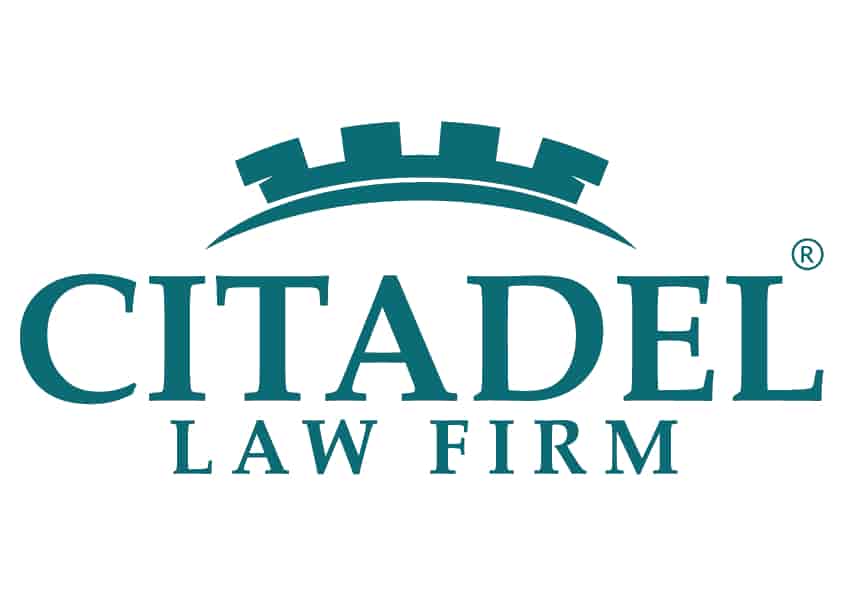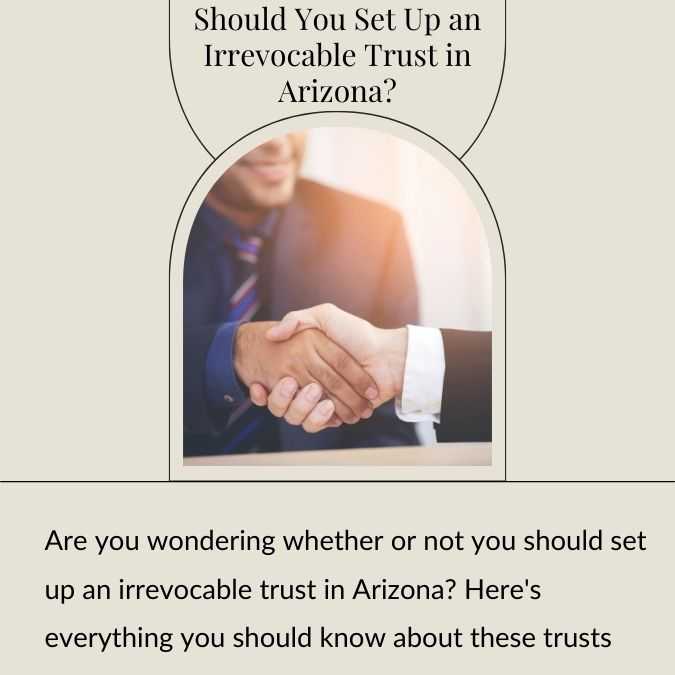Irrevocable Trusts in Arizona - do you need one?
Are you wondering whether or not you should set up an irrevocable trust in Arizona? Here's everything you should know about these trusts.
What happens to your house, savings, and life-insurance payout if a lawsuit hits or nursing-home bills pile up?
An irrevocable trust may be the safety net that keeps those assets in the family while trimming taxes at the same time.
At Citadel Law Firm PLLC®, we focus on estate planning for Chandler residents and families across Arizona, guiding them through wills, trusts, and probate every day.
This article helps you decide whether an irrevocable trust fits your goals under Arizona law.
Key Benefits of Establishing an Irrevocable Trust in Arizona
Before signing any paperwork, it helps to weigh the upside first. The points below show how an irrevocable trust can work for Arizona families when drafted and appropriately funded.
Asset Protection
Creditors, lawsuits, and judgments often target property held in your name. Placing that property in an irrevocable trust moves legal ownership to the trustee, putting a barrier between personal liability and the assets.
While no tool is foolproof, Arizona courts usually respect a properly funded trust, limiting a creditor’s reach unless fraud is involved.
Estate Tax Reduction
Large estates can face federal taxes that eat away at inheritances. When assets move into an irrevocable trust, they exit the grantor’s taxable estate.
This shift may keep the estate under the federal exemption level, saving heirs a sizable tax bill and smoothing the transfer process.
Medicaid Planning and Long-Term Care
Medicaid pays for many nursing-home stays, yet qualification rules look at both income and assets. By gifting property to an irrevocable trust more than five years before applying, you may pass the means test while still safeguarding wealth for loved ones.
If assets are transferred inside that five-year window, the agency can impose a penalty period, delaying benefits and forcing out-of-pocket payments.
Protection of Assets for Beneficiaries
An irrevocable trust allows you to direct how inheritances are released. You can postpone distributions until beneficiaries reach a certain age, finish college, or meet other milestones.
This structure can also shield an heir’s share from divorce proceedings or reckless spending, offering peace of mind long after you are gone.
The four advantages above often motivate Arizona residents to explore irrevocable trusts, yet no strategy is free of trade-offs. The next section covers drawbacks you should weigh just as thoughtfully.
Potential Downsides and Considerations
Every planning tool has limits. While the benefits can shine, an irrevocable trust comes with restrictions that may not match every family’s needs.
Loss of Control
Once the ink dries, the grantor no longer owns or directs the assets. If personal finances take a downturn, the property inside the trust cannot be tapped without beneficiary consent or a court order.
Inflexibility
After creation, changes are complex to make. Altering terms usually calls for approval from all adult beneficiaries or a judge, a hurdle that slows quick pivots when laws or family circumstances shift.
Tax Implications
The IRS treats an irrevocable trust as its taxpayer. If yearly income exceeds $600, the trustee must file a separate return and pay any tax due at trust rates, which rise faster than personal brackets.
Moving assets into the trust can also trigger the need for a federal gift-tax return, even if no tax is owed, thanks to the annual exclusion or lifetime exemption.
Complex Trust Terms
Trust language often stretches dozens of pages, weaving together contingencies on death, disability, and family changes. Missing or unclear provisions can spark disputes later.
Drafting with foresight helps avoid gaps, yet many people still feel uneasy reading dense legal text without guidance from counsel.
Weighing these hurdles against the benefits clarifies whether the arrangement suits your comfort level. To help with that comparison, glance at the chart below.
|
Factor |
Benefit |
Drawback |
|
Asset Ownership |
Assets shielded from personal creditors | Grantor loses direct access |
|
Estate Taxes |
Can lower the taxable estate value |
Gift-tax filing may be needed |
| Medicaid Eligibility | Helps meet asset limits after a five-year look-back |
Transfers inside five years create penalties |
| Flexibility | Protects beneficiaries with clear distribution rules |
Hard to amend without consent or court approval |
| Tax Filing | Trust pays its taxes, separating the grantor's liability |
Higher brackets apply at low income levels |
Reading the table may spark follow-up questions about your household’s circumstances. The next section highlights where an irrevocable trust often shines the brightest.
Specific Scenarios Where an Irrevocable Trust May Be Beneficial
Families turn to irrevocable trusts for a range of reasons. Below are common situations where the arrangement proves especially helpful:
- Asset protection from lawsuits and creditors: People in high-liability fields, such as physicians or real-estate developers, often move assets to a trust to distance themselves from personal exposure.
- Estate tax planning: If your portfolio edges close to the federal exemption, shifting value out of your estate today may spare heirs a future tax hit.
- Medicaid eligibility: Those planning for long-term care aim to meet resource limits without draining family wealth, and a trust funded early can help.
- Special needs planning: A special-needs trust, which is irrevocable, lets you support a disabled loved one while preserving access to government programs.
If any of these descriptions match your concerns, an irrevocable trust deserves closer review. The final decision rests on personal comfort with control, taxation, and future uncertainty.
Is an Irrevocable Trust Right for You? Key Considerations
No single checklist fits every household, yet the points below often guide the choice:
- How willing are you to give up direct control of the property placed in the trust?
- Will you need that property or its income stream for living costs down the road?
- Could changing tax laws shift the value of moving assets out of your estate?
- Do the protective benefits outweigh the loss of flexibility in your eyes?
Answering each question with honesty narrows the path forward. A conversation with counsel can then fill any remaining gaps.
Take the Next Step: Contact Citadel Law Firm PLLC® for Assistance
Setting up an irrevocable trust carries lasting effects, so sound guidance matters. Our team at Citadel Law Firm PLLC® walks Arizona families through drafting, funding, and administering these trusts every week.
Reach us at 480-565-8020 or visit our Contact Us page to schedule a chat. We look forward to helping you protect what you have built and pass it on with confidence.


